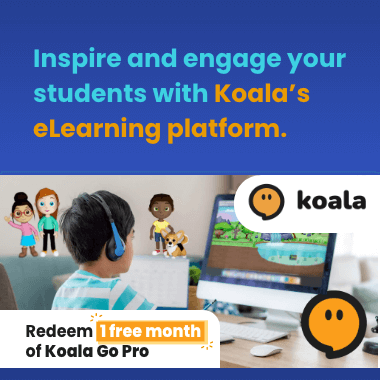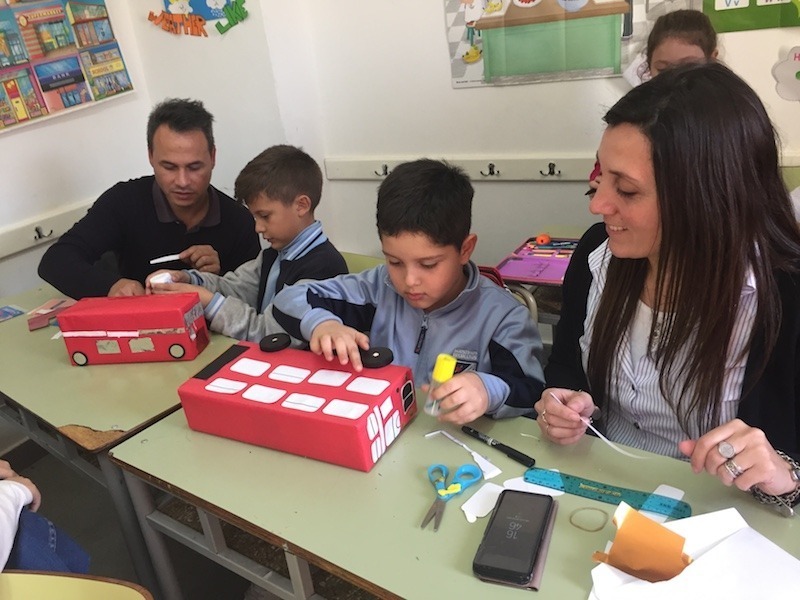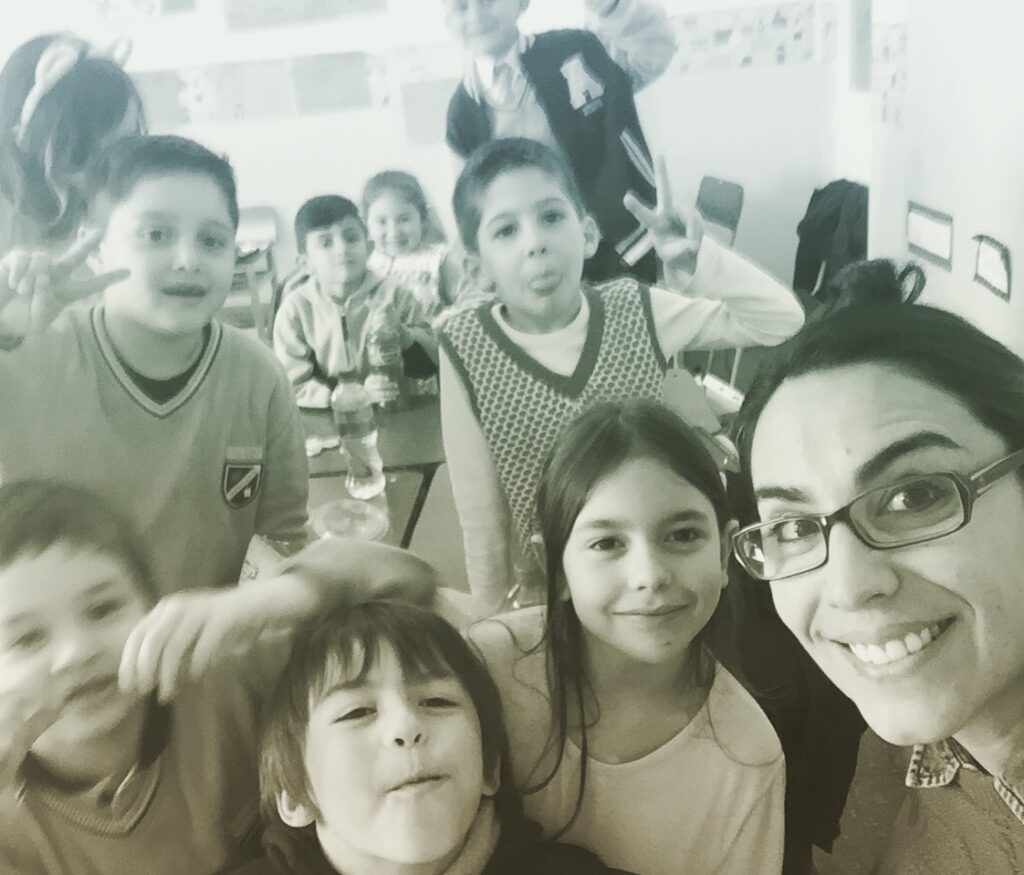Gabriela Torregiani (Gabby), an experienced ESL teacher and teacher trainer, is a Bridge course tutor for our newest programs: Teaching English to Young Learners and Teaching English to Teenagers. In addition to training teachers online, Gabby, who is from Argentina, is currently the Headmistress at St. Joseph School in Buenos Aires.
We spoke with her about being a TEFL/TESOL course tutor, her teaching experience, her advice for how to teach kids English, and how being a non-native English speaker has benefited her career.
How did you get started teaching English?
In Argentina, I learned English at school and started when I was very young. My parents don’t speak English at home, and I am not a native speaker, but after studying the language and working in English for so many years, I became bilingual. My school was bilingual too. I remember being inspired by my second-grade teacher. I can still remember her singing, “Head and Shoulders” to teach us vocabulary and that was when I decided I wanted to pursue a career in teaching.
When I finished teacher-training college, I attended a two-day workshop here in Argentina taught by a teacher from abroad. She encouraged me to train teachers, and soon after, I left for the U.S. and attended the University of California at Santa Barbara to study under that same woman who had inspired me.
After my postgraduate studies, I worked for a school in Argentina both as a teacher and coordinator. This was not my first time teaching English, however. I actually began working at the very young age of 17 while I was still in school, due to the high demand for competent and passionate EFL teachers.
Where have you taught English and to what kinds of students?
I have over 22 years’ experience teaching English as a foreign language (TEFL), having worked as a classroom trainer for more than 15 years and as an online trainer for 13 years and counting!
I have worked with all different levels and ages at schools, institutes, agencies, companies — everywhere. I have experience teaching English online and even on the phone.
I also worked as a coordinator, helping teachers with lesson plans, syllabuses, observing classes and giving feedback. I love working in education!
Tell us about your current headmistress job at St. Joseph School.
I have been there for over one year now. The school I work for has an academy, and I am the head of that academy, but I also help manage the school since English is one of their programs.
I work with everyone — owners, teachers, students, and parents. I recruit teachers and coach and train them, helping with the creation of the curricula and lesson plans and observing and guiding them. I help students, too, by teaching and assessing them. In my spare time, I also do some marketing for the school!
At St. Joseph’s, I motivate my teachers the same way I want them to motivate the students. I give them tools and I share my own experience with them. We are all trying to master the language, but it takes time. Not everybody is used to working — or learning — in the same way.
You’ve taught all different ages. What would you say are the pros and cons of teaching kids vs. adult English students?
I love teaching both ages! As for the differences I’ve seen, the biggest one I’ve noticed is that kids are not afraid of making mistakes, which can help in the learning process. Kids also learn while playing, and this could be very fun and rewarding (it could be quite messy too)!
However, I also play games with my adult learners. I might adapt them to their age level, but games can be a fun way to engage with adult students in the classroom and get them practicing their conversation skills.
What recommendation do you have for someone who wants to teach English to kids but has no experience?
I started that way, so don’t shy away from it due to your lack of experience! Here’s my advice:
English isn’t your first language. How has that shaped the way you teach?
I always thought this was an advantage. I learned the language in a different way that native speakers do, and I really know my grammar! I understand how to help students acquire the language — how to explain things, how to have fun with the language, etc. Because I learned English as a foreign language myself, I am better able to relate to my students and understand what they struggle with and why. This has been a big benefit to me throughout my career in TEFL.
You’re a Bridge course tutor for both the general Online TEFL/TESOL Certification Courses and the Teaching English to Young Learners and Teens Courses. Who’s the average trainee in these courses?
Many students are still in university, but we get people from all ages and from all parts of the world with and without teaching experience wanting to change their lives and teach English both abroad and at home.
How much interaction do you have with your trainees in the online courses?
I am always there if they have questions. I respond via email and am there to support them when they have doubts. Throughout the online course, trainees are responsible for passing the quizzes at the end of each module, and I do not interfere with that. I correct the assignments they submit, and when I do, I give them tips, feedback and of course, I try to share my own real-life experiences on the topic with them.
What do you like best about training future English teachers?
I love sharing what I’ve experienced, what I’ve learned, and who I am. I love coaching, guiding, and helping trainees become the best teachers they can be.
Can you tell us about a time you felt you made an impact on a TEFL/TESOL trainee’s life?
What I hear most often is that my trainees enjoy learning skills only a non-native teacher could teach them. I remember one trainee telling me: “you are a machine!” He was amazed at the way I could show him how to teach English using his native language.
The most rewarding thing for me has been watching trainees come into their own as teachers after finishing a course. I love watching them become confident in their teaching skills and implementing all the lessons we share with them during their training. I think that we teachers always make a difference regardless of the approach we pick. If you are passionate about what you do, you will succeed! (Read more about Gabby and other Bridge course tutors.)







